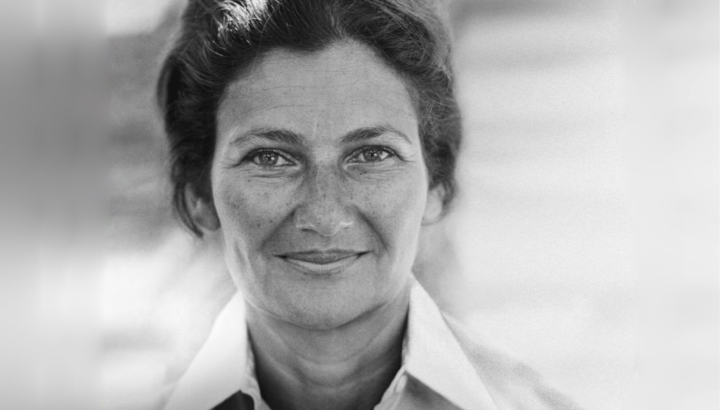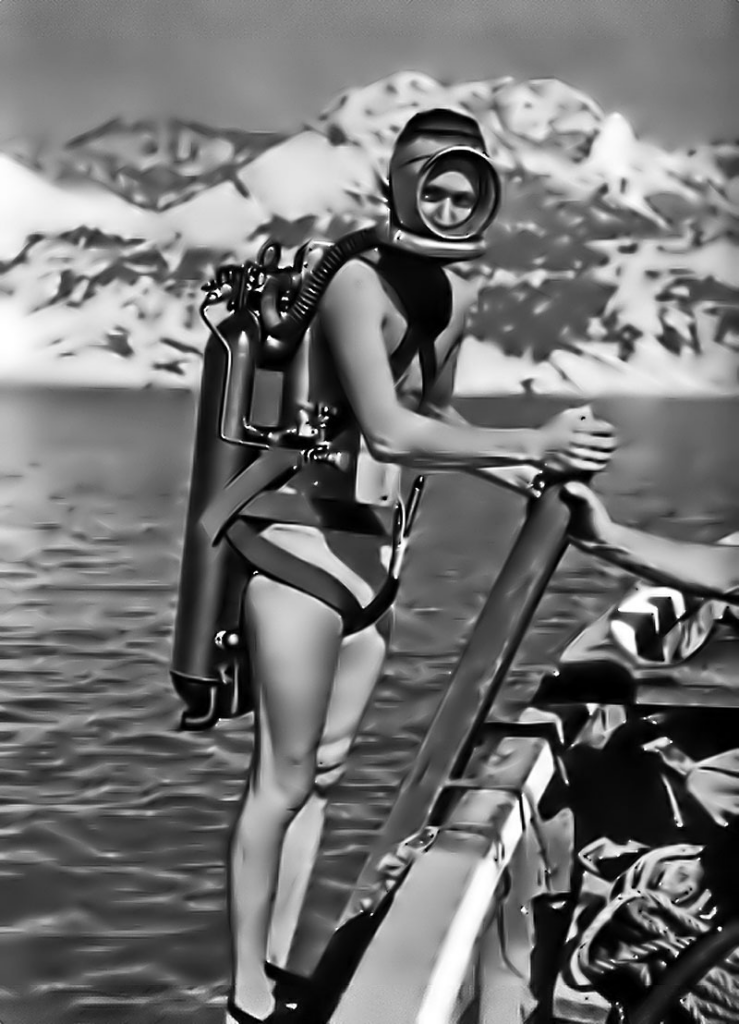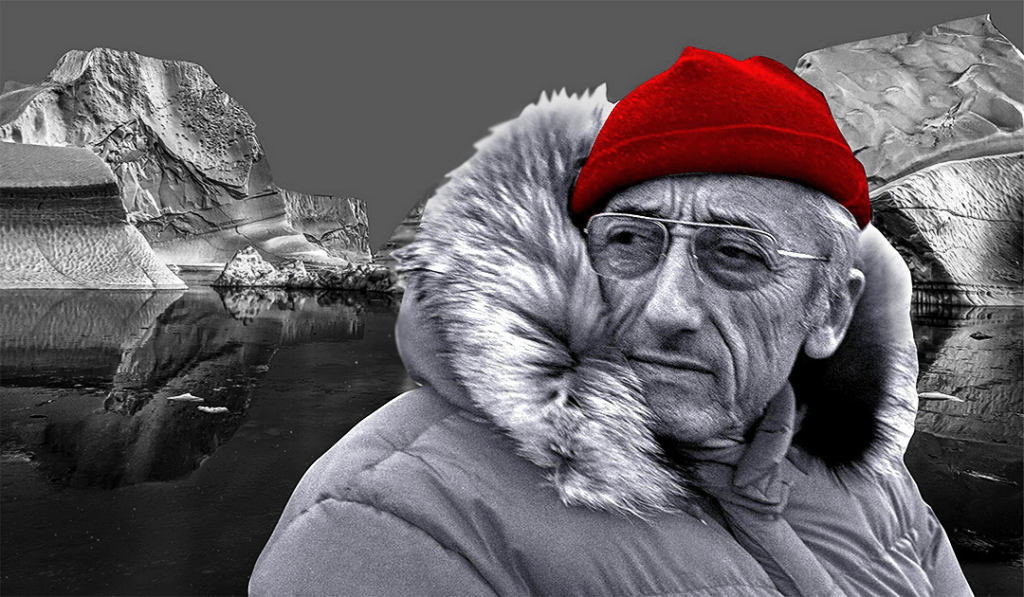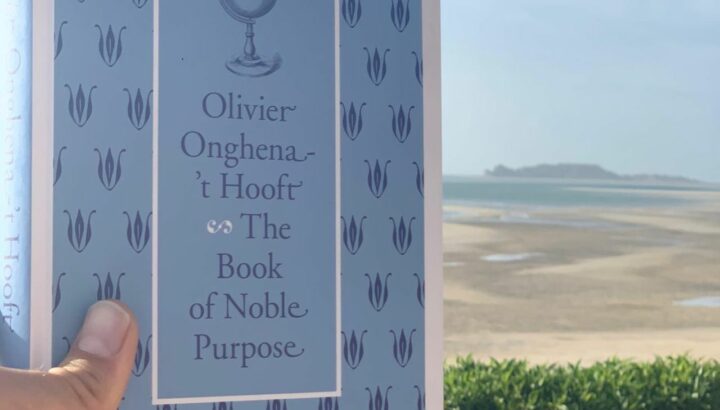
Simone Veil and the Power of Noble Purpose: A Life Lived for Humanity
“Born in 1927 in Nice, France, she was just 16 years old when the Nazis stormed into her life, tearing her family from their home and dragging them into the dark abyss […]

Jacques Cousteau

In an era when technology was beginning to shrink it, Jacques Cousteau expanded the world.
The French naval officer-turned-explorer didn’t just explore the oceans; he revealed their souls to humanity. Cousteau’s life was a Life of Noble Purpose—an unwavering commitment to the planet that transcended personal ambition and inspired a global movement toward environmental stewardship.
Jacques Cousteau once said, “The sea, once it casts its spell, holds one in its net of wonder forever.”
Jacques was driven by a Noble Purpose as deep and vast as the ocean itself. Cousteau did more than explore; he awakened humanity to the fragile beauty of our planet.
Cousteau’s journey began with a tragic accident. In 1936, a car crash left him with severely injured arms. As part of his rehabilitation, he took up swimming in the Mediterranean Sea. What began as physical therapy soon transformed into a spiritual awakening. Cousteau felt a connection to the water that ran deeper than mere curiosity. The ocean wasn’t just a place to swim—it was a vast, unexplored world waiting to be understood.
In the early 1940s, Cousteau stood on a rocky shore, gazing out at the Mediterranean. He felt an inexplicable pull toward the sea, an inner calling that would shape his destiny. Equipped with the newly invented Aqua-Lung, he dove into a world that few had ever seen.
In his words, “We forget that the water cycle and the life cycle are one.”
Each dive became a communion with nature, an act of humility before the mysteries of the deep.
His desire to explore led to the invention of the Aqua-Lung in 1943, a device that revolutionized underwater diving. This wasn’t just a technical achievement; it was Cousteau’s first step towards something bigger, something greater.

With the Aqua-Lung, the ocean was no longer a distant mystery—it was within reach.
But Cousteau didn’t stop at discovery; a Noble Purpose drove him: to make others see the ocean as he did, to feel its importance, and to fight for its survival.
Cousteau’s journey was marked by moments of profound clarity. On an expedition in the Red Sea, he swam among vibrant coral reefs and schools of fish, realising that the ocean was not merely a realm of discovery but a fragile ecosystem in desperate need of protection. He witnessed coral bleaching and marine life disappearing before his eyes.
From that moment, Cousteau’s explorations took on a new urgency: he was not just an explorer but a guardian of the sea.

Through groundbreaking films like “The Silent World” and “The Undersea World of Jacques Cousteau,” he brought the beauty and fragility of the ocean into millions of homes. His storytelling wasn’t just about sharing stunning visuals; it was a call to action. Cousteau used his platform to advocate for marine conservation long before it became a global issue. He understood that with knowledge comes responsibility, and he took it upon himself to educate the world about the dangers of pollution, overfishing, and climate change.
In 1973, Cousteau founded The Cousteau Society, formalizing his mission to protect marine life. Under his guidance, the organization became a leader in environmental advocacy, conducting research, launching campaigns, and pushing for international agreements to safeguard the oceans. Cousteau’s leadership exemplified the core of Noble Purpose: aligning one’s life with a mission that serves the greater good, inspiring others to join the cause, and creating lasting change.

In 1974, aboard his beloved ship Calypso, Cousteau made a startling announcement to his crew:
“We must become the voice for those who cannot speak—the oceans.”
He led campaigns against nuclear waste dumping, lobbied for marine reserves, and passionately spoke at the United Nations. His voice was not just one of protest but of hope. He believed that humanity could change its ways, saying,
“People protect what they love.”
He made it his mission to make everyone fall in love with the ocean.

One winter, Cousteau anchored Calypso in Antarctica, where he observed penguins diving into icy waters, living in perfect harmony with their environment. This experience reinforced his belief that humans must learn from nature’s delicate balance.
Cousteau spoke of his vision: “If we were logical, the future would be bleak indeed. But we are more than logical—we are human beings, and we have faith, and we have hope, and we can work.”
His life became a bridge between what was and what could be.
Jacques Cousteau passed away in 1997, but his legacy lives on in the ongoing efforts to protect the oceans. His life story powerfully reminds us that authentic leadership is about more than achieving personal success—it’s about finding something that transcends the self and dedicating one’s life to it.
Cousteau’s Noble Purpose was the ocean, and through his work, he ensured that it would be cherished and protected for generations to come. Cousteau’s legacy is more than his films or inventions; it is a call to each of us to find our own Noble Purpose. He reminds us to dive into the unknown. He inspires us to commit to something greater than oneself. In these moments, we discover the true depths of our potential.

As we face the environmental challenges of the 21st century, Jacques Cousteau’s example is more relevant than ever. His life teaches us that with vision, passion, and a commitment to a noble purpose, we can create a better world. The ocean was Cousteau’s calling; the question now is, what will be ours?
Jacques Cousteau’s life was a journey of discovery—not just of the seas, but of the soul. He taught us to dream a noble purpose, to explore not just for knowledge, but for understanding, empathy, and change.
As we navigate our own paths, we can look to Cousteau’s example and ask ourselves:

“Born in 1927 in Nice, France, she was just 16 years old when the Nazis stormed into her life, tearing her family from their home and dragging them into the dark abyss […]

“Is there another way beyond our traditional understanding of managing transitions while change happens?” Kushagra Patwa, Head of Spiritual Advisory Introduction Three leadership skills explored that have resonated deeply with me: ‘Change […]

Why giving true meaning to your Life matters? Should you wish, the book is still available for purchase on https://www.lannoo.be/nl/book-noble-purpose or any major online distribution channel.